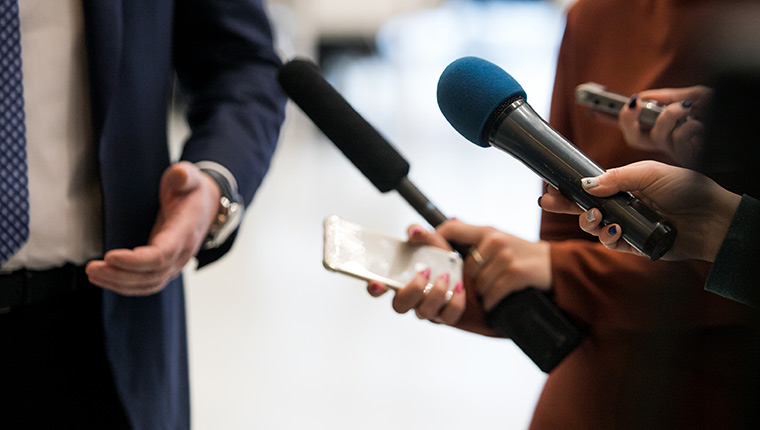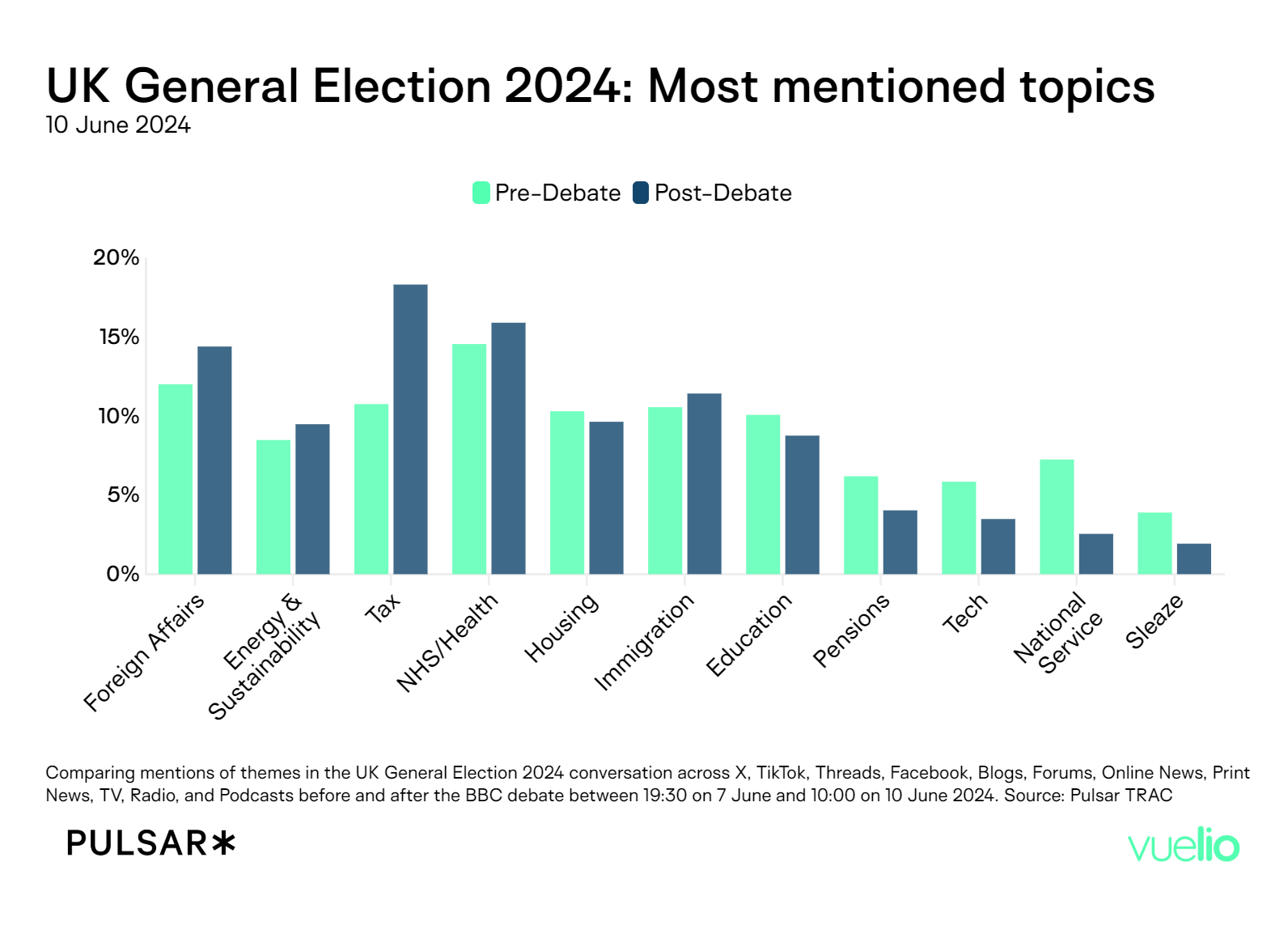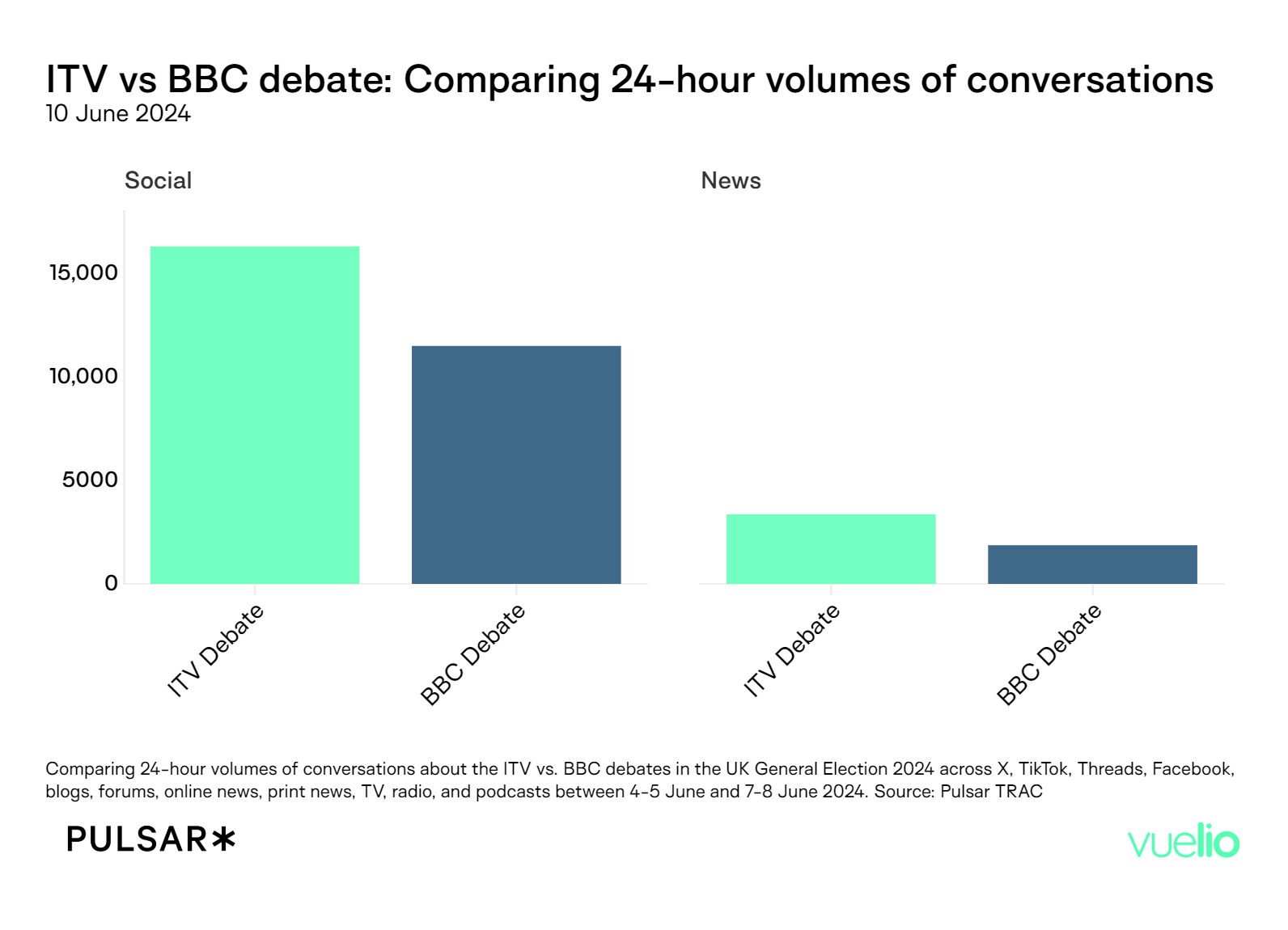From Mordaunt vs Rayner clash to Farage winning popularity poll: Impact of the second TV debate
By Phoebe-Jane Boyd, Dahye Lee, and Ingrid Marin.
Representatives from seven parties took to the stage for Friday 7 June’s BBC Election Debate 2024. Following on from ITV’s broadcast of Sunak vs Starmer’s debate the previous week, which topics grabbed the attention of the viewers and sparked political media reports this time around?
We analysed social and news in the UK General Election 2024 conversation across X, TikTok, Threads, Facebook, blogs, forums, online news, print news, TV, radio, and podcasts, from Friday 7 June 7:30pm, to Monday 10 June.
Did the Conservative’s Penny Mordaunt, Labour’s Angela Rayner, Liberal Democrats’ Daisy Cooper, Scottish National Party’s Stephen Flynn, Green Party’s Carla Denyer, Plaid Cymru’s Rhun ap Iorwerth, and Reform UK’s Nigel Farage’s time on TV shift the needle on the conversation?
Tax, health and foreign affairs – Most popular topics before and after Friday’s debate
Taking the spotlight for many write-ups in the press and reaction on social media following the debate were the clashes between deputy Labour leader Angela Rayner and Commons leader Penny Mordaunt, who had been placed in close proximity.
Key moments from Friday: The clash over Mordaunt’s choice to repeat Conservative claims that Labour would raise taxes by £2,000; Mordaunt’s repeated apologies for Prime Minister Rishi Sunak’s early departure from the D-Day ceremony; and Reform leader Nigel Farage’s strong criticism of Sunak, branding him ‘unpatriotic’ and a ‘complete and utter disgrace’. Farage himself did not escape harsh words, being described as a ‘clown personality’ by Rayner.
Overall, the BBC debate didn’t make a significant splash when it comes to pushing the directions of press coverage and online conversations. The main difference in trending topics across both when looking at pre- and post- Friday’s debate is for discussion of tax.
Tax saw the highest increase (+7.5%) among the topics we tracked compared to share of voice before Friday’s televised debate.
Mordaunt was criticised by many across social media for returning to the well of that controversial £2k tax claim that Sunak had dug in the first debate:

Reports from Sky News, BBC, and The Guardian concerning Labour’s mention of ‘no tax hikes’ were highly shared.
Another conversation that increased following the second debate – the topic of the NHS.
Analysis shows this was driven by Farage’s statement during the debate that the NHS should be scrapped in its current form. This comment continues to drive discussion in the press and online, as it faces criticism from left-leaning audiences:

Which of the two TV debates so far has driven the most coverage and conversation?
Analysis of the 24-hour periods following each debate shows that it was 6 June’s ITV broadcast that has had the most impact on the conversation and coverage, driving reports and shares. The reason for this could be two-fold – the first debate of its kind for this General Election drew more curiosity, and featured the only two party leaders realistically positioned to be UK Prime Minister post election.
But what do the polls say?
Following the BBC debate, a poll from More in Common found that Farage possibly came out on top; with 25% thinking the Reform leader had won the debate; 19% saying Angela Rayner; 14% saying none of the above; 11% for the Green Party’s Carla Denyer; 10% for the Scottish Nationalist Party’s Stephen Flynn; 7% for Penny Mordaunt; 5% for the Liberal Democrat’s Daisy Cooper; and 2% for Plaid Cymru’s Rhun ap Iorwerth.
As the media, and voters, await the release of each party’s manifestos this week – much mooted by each speaker throughout both TV tussles – debate as fierce as those televised so far continues online and in the press.
For regular updates on what is happening in UK politics and public affairs, sign up to our weekly Point of Order newsletter, going out every Friday morning.










Leave a Comment